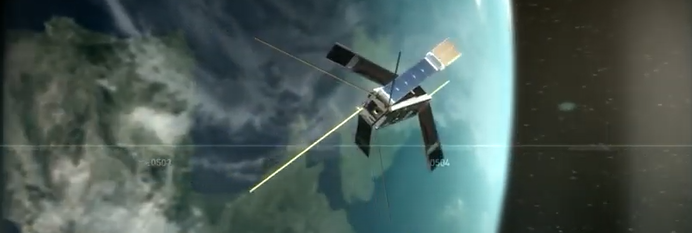TU Delft researchers from the TU Delft Space Institute and the Dutch Optics Center and 20 partners will develop reliable and safe wireless broadband connections using light instead of radio waves. They anticipate that this technology will allow us to securely send and process digital data at high speeds, with low latency. For this research project, the consortium has been awarded €4.1 million from the Dutch Research Council’s (NWO) Perspectief programme.
In order to create a new paradigm for wireless communication that can be used safely and efficiently anytime, anywhere, the “Free Photon’s at home and in space” (FREE) consortium’s academic team collaborates with companies from, for example, the aerospace industry and the high-end technology industry. The collaboration between the universities (the technical universities TU Delft, Eindhoven University of Technology and Twente University, as well as Leiden University and Vrije Universiteit Amsterdam) connects different worlds – from satellites in space to users at home. Information is the lifeblood of today’s digital society. The amount of data, and the use of that data, has increased exponentially over the last 50 years. However, traditional technologies used to distribute data, from Wi-Fi in our homes to satellite communications, have already reached or will soon be reaching their limit in terms of capacity. There is a growing need for a new and unifying paradigm for wireless connectivity. As part of the FREE consortium, 21 partners have joined forces to develop new solutions that use light instead of radio waves (which is what the 5G network is based on, for example) to create reliable and secure wireless broadband connections.
Information is the lifeblood of today’s digital society. The amount of data, and the use of that data, has increased exponentially over the last 50 years. However, traditional technologies used to distribute data, from Wi-Fi in our homes to satellite communications, have already reached or will soon be reaching their limit in terms of capacity. There is a growing need for a new and unifying paradigm for wireless connectivity. As part of the FREE consortium, 21 partners have joined forces to develop new solutions that use light instead of radio waves (which is what the 5G network is based on, for example) to create reliable and secure wireless broadband connections.
The consortium will develop the technology that ultimately may enable a ‘network of networks’, in which satellite communications are seamlessly integrated with ground-based networks to provide satellite-to-satellite Network Functions Virtualisation (NFV) and Software Defined Networking (SDN). This simplified integration between terrestrial and satellite networks will open up new opportunities for the Internet of Things (IOT), as well as for more accurate weather forecasting, for example. The consortium anticipates that the huge amount of available bandwidth, the inherent security, the limited latency and license-free operation will result in a 10- to 100-fold increase in wireless connectivity.
The consortium is led by Prof. Dr. Eberhard Gill (TU Delft) and consortium partners are Airbus DS, Aircision, Demcon, Effect Photonics, Flexible, Hyperion Technologies, ISIS, Lionix, NLR, Phix, Quix, Signify, Single Quantum, S&T, TU Delft, Eindhoven University of Technology, TNO, Leiden University, Twente University, Vrije Universiteit Amsterdam and VTEC.